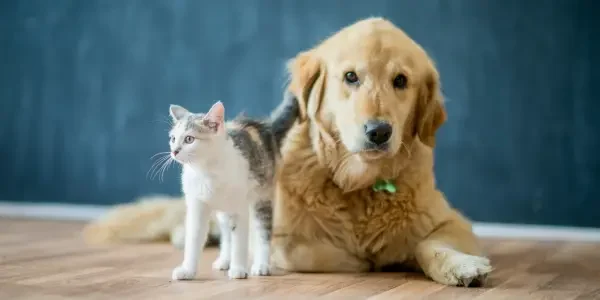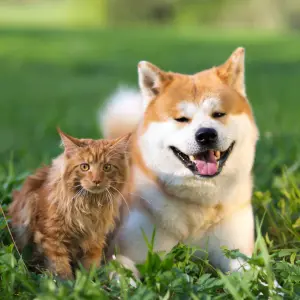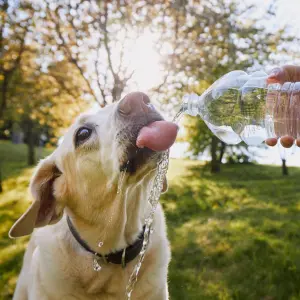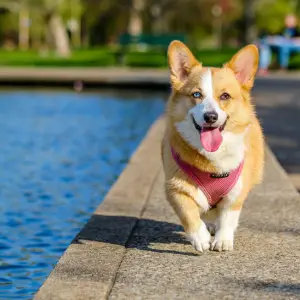Pet Water Intake
As pet owners, we have a responsibility to ensure the well-being of our furry companions. Adequate hydration is a vital aspect of their overall health. In this article, we will delve into the importance of proper water intake for a range of pets and provide guidelines to help you ensure they stay adequately hydrated.
Water is a fundamental building block of life, and its significance extends to our animal companions as well. Just like humans, pets require water to maintain vital bodily functions. Water plays a crucial role in regulating body temperature, aiding digestion, lubricating joints, and transporting nutrients throughout the body. Adequate hydration is essential for pets to remain healthy and active.

Recommended Water Intake for Pets:
While the water needs of pets vary depending on species, size, and activity level, it is essential to provide a general understanding of recommended water intake for different animals. Here are some guidelines:
Dogs
Dogs have varying water intake requirements based on factors such as size, breed, age, and activity level. As a general guideline, dogs typically require approximately 1 ounce of water per pound of body weight each day. For example, a 50-pound dog would need around 50 ounces (or about 6 cups) of water daily. However, it’s important to note that active dogs or those living in warmer climates may require even more water to stay properly hydrated. If your dog is highly active or spends time outdoors in hot weather, monitor their water intake closely and ensure they have access to fresh water at all times. Additionally, specific dog breeds or certain health conditions may warrant adjustments to their water intake. Consult with your veterinarian for personalized guidance based on your dog’s unique needs.
Cats
Cats, like dogs, require an adequate intake of water for proper hydration. On average, cats need approximately 3.5 to 4.5 ounces of water per 5 pounds of body weight daily. While wet cat food can contribute to their overall water intake, it is crucial to provide access to fresh water as well. Some cats prefer running water, so using a cat water fountain with a flowing stream can encourage them to drink more. Keep in mind that cats with certain health conditions, such as kidney disease or urinary issues, may require additional water to support their specific needs. If your cat has any underlying health concerns, consult with your veterinarian for tailored recommendations on water intake.
Small Mammals (e.g., Rabbits, Guinea Pigs):
Rabbits and guinea pigs have unique hydration requirements. These small mammals should have access to fresh water at all times. Provide a water bottle with a sipper tube or a shallow dish of water, depending on their preference. Monitor their water intake to ensure it remains consistent throughout the day. It’s important to note that some vegetables and fruits have high water content and can contribute to their overall hydration. However, water should still be readily available to them, especially during hot weather or if they consume a predominantly dry diet. Regularly check the water container to ensure it is clean and free of contaminants.
Birds:
Birds require fresh water daily to maintain proper hydration. Provide a clean water container securely positioned within their enclosure to prevent spillage and contamination. Some birds may enjoy misting or bathing in water, which not only helps them stay hydrated but also supports healthy feathers. Monitor the water level regularly and refill as needed. Ensure the water container is easily accessible and large enough for your bird to drink from comfortably. If you have multiple birds in the same enclosure, consider providing multiple water sources to avoid any dominance-related issues.
Reptiles and Amphibians:
The hydration needs of reptiles and amphibians can vary significantly depending on the species and their natural habitat. Research the specific requirements for your pet reptile or amphibian to understand their water intake needs. Some reptiles obtain water from moisture-rich foods, while others may require regular misting or bathing to maintain hydration. It’s crucial to create a suitable environment that mimics their natural habitat, including providing water sources such as shallow bowls or misting systems. Regularly observe your reptile or amphibian’s behavior and consult with a reptile specialist or herpetologist to ensure you are meeting their unique water requirements.
Conclusion
Proper water intake is crucial for the overall health and well-being of our pets. Understanding the importance of hydration and providing adequate access to fresh water is essential for maintaining optimal bodily functions. Remember to consider the specific needs of each type of pet when determining their water intake. By prioritizing hydration, we can ensure our beloved animal companions live happy, healthy lives.
Visit our website to discover more valuable resources on pet care and well-being. Sign up for our newsletter to receive regular updates and tips on keeping your pets hydrated and healthy. Share this article with fellow pet owners to spread awareness about the importance of proper water intake for different types of pets. Together, let’s provide the best care for our cherished animal companions.



